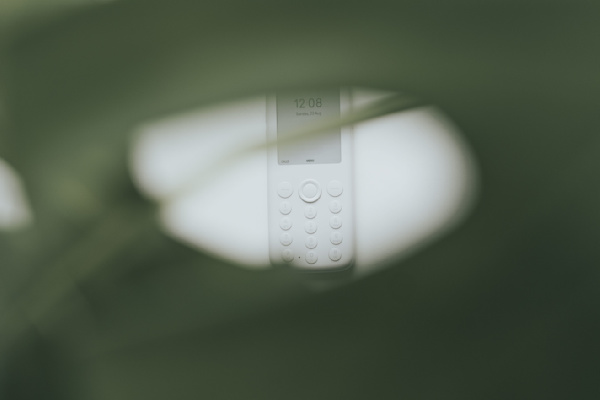
Is life offline over? How BIG TECH is changing everything
Is life offline over? How BIG TECH is continuing to change our world.
Once upon a time, to be human meant being at the centre of our own universe, to experience life in all its colors and all its potential, in the present moment.
However, in the digital world, a ‘human’ is a collection of some unique data: tweets, status updates, forum posts, photos, videos, search engine results, favorite sites, playlists and more. Our offline life is intertwined with our online presence.
Today’s devices are increasingly required to stay connected, the Internet of Things (IoT) is starting to get crowded. Apart from smartphones, smartwatches and smart TVs, we are witnessing the advent of … smart cookers, smart ovens, smart refrigerators and many other (sometimes unnecessarily) smart things. According to Cisco estimates, the Internet of Things will contribute to nearly 50 billion smart items being part of everyday use by 2020. Gartner is much more cautious and states that the above estimate should be reduced by almost a half, i.e. to a total of 26 billion units.
We are another link in the chain of evolution: the homo cyberneticus.
Are we aware just how much data has changed our lives?
Social life
Do random people know more about you than your parents or relatives in general? That is the definition of the digital age. A few mouse clicks are enough to scan a piece of your life that you have voluntarily shared with the world.
But we have to remember the cost of digital exhibitionism. The knowledge of each one of us is at our fingertips, or rather the touch of a smartphone. No clairvoyant or internet analyst is needed here. Just a glimpse of anyone’s social media profile is enough (another reason why privacy settings are important).
Are you complaining about the lack of privacy or anonymity on the web? Remember that you renounced it voluntarily when you decided to participate online. Therefore, there is nothing to moan about. However, you should learn how to manage your data and rethink your content.
Work
Looking for a job or have an appointment for an interview? Clean up your social media presence first. HR specialists know that BIG TECH overexposure to social networking sites will tell them much more than you ever will.
Employers might say: “He posted an inappropriate photo or comment or an entry about a former employer”, “He posted alcohol or other drug-related content”, “He demonstrated poor communication skills”.
The conclusion is simple: BIG TECH is your online business card. Moderate your content. You are never sure if your online profile will not be visited by a HR headhunter from the company that you have always wanted to work with.
Online love
Thanks to Tinder, and other apps conquering the dating market, some of us are even dating digitally. By using BIG TECH and analyzing cookies, those apps tell us which of the users close to us might be potential matches. Instead of believing in love at first sight, we prefer to first look at our potential date carefully.
We swipe our fingers on the screens of our smartphones: either to the left or to the right. This is how we choose the people with whom we would like to go on a date. We use a zero-one approach. We can also define the parameters that our potential date should meet, i.e. select the data that we want. Thanks to BIG TECH we are able to choose dates that have all of our desired traits.
Someone may ask: what about the ‘first impression’, the thrill that accompanies the first face-to-face meeting if you can browse the web and find out everything about our potential date? On the other hand, online dating is meant for people who do not want to ‘buy a pig in a poke’ as opposed to the old school blind date.
Additionally, a key question arises: can we make use of this data? Analysts would phrase the question differently: can we convert BIG TECH into Smart Data? Data opens a secure communication area for us, as long as we can use it.
The internet browser as a mirror
The web is personalizing. Apart from the ‘Internet of Things’, the concepts of ‘The Internet of Me’ or ‘Internet Online’ are emerging. The network learns our behaviors and adapts to them.
Show us your browser history, bookmarks etc. and we can tell you who you are. Show us the ads that pop up on the web and we will tell you what you are looking for and what you are interested in. Show us your history of recently opened pages and we will tell you what you will see in the coming days. Everything is targeted marketing.
How do we know this? Because your network traffic is stored in the form of cookies that contain anonymous information about you. They contain data on what you are looking for on the web, what you are interested in, what sites you visit and how much time you spend on them, what you bought recently, what you have in your shopping cart, etc. No worries — cookies do not contain any ‘sensitive data’, such as your name, address, etc. In all honesty, this kind of personal data is completely irrelevant to the analyst.
All they care about is ‘what you click’ and where. These are the cookies that advertisers are fighting over because they tell them what they should display on your computer screen. Your digital portrait is made with BIG TECH’s behavioral Engine. It is what determines what ads are displayed in your browser.
Looking for a jacket for winter? A few hours later you get the ad for the jacket that you looked at when browsing stores. Have you looked for information about holidays in Spain? You will soon see an all-inclusive offer with a discount price in the corner of your screen. Contemporary advertising, called personalized or behavioral advertising, is the litmus test of your online activity. It lives with you and learns your behavior.
If there were 10 identical computers and among them would be yours, it would take you a few minutes of browsing the web on each of them to figure out which one belongs to you. You could tell it was yours by the advertisements that would pop up on websites.
The digital world versus the analogue world
The boundary between the digital and analogue world is becoming blurred with each coming day. Life is digitizing at a dizzying pace and BIG TECH goes into every part of it. As estimated by Oracle, BIG TECH grows by about 4 percent annually, and the value of the BIG TECH market is growing six times faster than the entire IT industry.
The amount of data we produce every day is truly astonishing. According to DataCenter News, we generated more than 64 zettabytes of data in 2020, and by the year 2025, we will generate more than 175 ZB. The IDC, a global provider of IT market research, calculates that more than 52 GB of data per capita will be shared per person and 1/3 of this data will be of great value, because they will be carefully tagged and analyzed by data researchers. The real challenges are still ahead of us. “The future belongs to BIG TECH,” says the president of the largest data warehouse in this part of Europe.[1][2]
The companies that use BIG TECH today no longer focus on simply collecting, processing, segmenting and analyzing data, which is referred to as ‘data harvesting’, and then monetizing on it. BIG TECH is a digital guide that improves not only business but also everyday life.
According to research key decision makers in companies (especially in the IT sector) admit that data analysts empower businesses to streamline their business decisions, including the use of data for ‘doing good deeds’, that is activities that bear the mark of corporate social responsibility.[3]
This increasingly popular trend is referred to as Good Data or using the broader term BIG TECH for social good. Anonymous behavioral data makes it possible to understand the behavioral patterns of larger groups of people and then use them to benefit society, social impact data.
Of course, we must remember that BIG TECH doesn’t provide black and white answers. BIG TECH doesn’t think for us, but it expands our thinking and allows us to venture into areas previously inaccessible. BIG TECH provides a bigger picture, an overview of each case with virtually unlimited perspectives. Therefore, there is no exaggeration in claiming that BIG TECH is today's ‘digital God’.
If you enjoyed this article, please check out similar ones featured on our blog and learn more about how BIG TECH is impacting our everyday lives and what steps you can take to safeguard your privacy.
To learn more about Mudita, take a look at our website and our other posts. If you enjoyed reading this article, please share and recommend it!
Related stories

Sleep debt: can you catch up on sleep?
Sleep debt isn't like bank debt; you can't just make a big deposit on the weekend and expect your body to balance the books!

Restful January: Tips for Post-Holiday Sleep Disruption
Learn how to embrace healthier sleep routines with Mudita, and reset your sleep schedule for a restful January.

The Compelling Case for Reinstating the Classic Alarm Clock
Discover the transformative power of Mudita Bell and Mudita Bell 2 alarm clocks in enhancing your sleep hygiene.
If you'd like to receive the best stories from our blog, keep up to date with our progress and get notified about our product releases and special discounts.